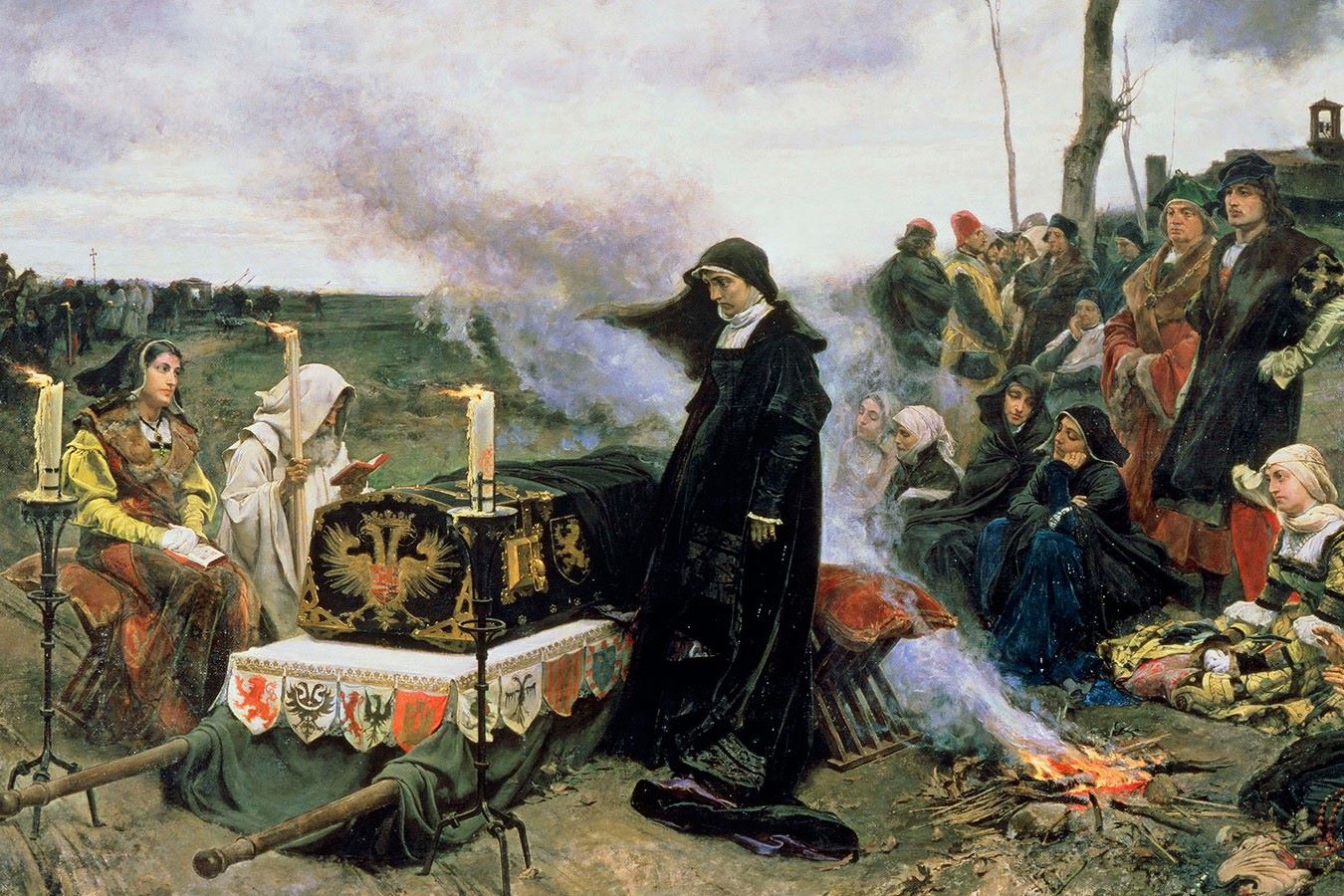
Ever wondered what makes some rulers truly insane? History is filled with leaders whose actions and decisions defy logic. From bizarre laws to outrageous behaviors, these rulers have left a mark that's hard to forget. Insane rulers often blur the lines between genius and madness, making their stories both fascinating and terrifying. Imagine a king who declared war on the ocean or an emperor who appointed his horse as a senator. These are not just myths but real events that shaped history. Buckle up as we dive into 35 jaw-dropping facts about some of the most insane rulers the world has ever seen.
Key Takeaways:
- History is full of rulers who did some really crazy things, like declaring war on the sea and appointing a horse as a priest. It's like a wild novel come to life!
- Some rulers were so insane, they killed their own son, impaled enemies on stakes, and even believed they were made of glass. It's like a real-life Game of Thrones!
Insane Rulers Throughout History
History is filled with rulers whose actions and decisions were so bizarre, they left a lasting mark. These leaders often ruled with an iron fist, making choices that seemed more like the plot of a wild novel than reality. Here are some of the most insane rulers and the unbelievable facts about them.
Caligula: The Mad Emperor of Rome
Caligula's reign as Roman Emperor was marked by extreme extravagance and cruelty. His actions were so outrageous that they still shock people today.
- Caligula once declared war on the sea, ordering his soldiers to collect seashells as spoils of war.
- He appointed his horse, Incitatus, as a priest and planned to make it a consul.
- Caligula forced wealthy Romans to write him into their wills, then had them executed to claim their fortunes.
Ivan the Terrible: Russia's Ruthless Tsar
Ivan IV, known as Ivan the Terrible, ruled Russia with a terrifying grip. His paranoia and violent outbursts made him one of history's most feared rulers.
- Ivan created the Oprichniki, a secret police force that terrorized the Russian populace.
- He killed his own son in a fit of rage, leaving Russia without a competent heir.
- Ivan would often torture and execute people in public, using methods like impalement and boiling.
Vlad the Impaler: The Real Dracula
Vlad III, also known as Vlad the Impaler, was a 15th-century ruler of Wallachia. His brutal methods of punishment earned him a fearsome reputation.
- Vlad impaled thousands of his enemies on stakes, leaving their bodies to rot as a warning.
- He once invited hundreds of nobles to a banquet, then had them all stabbed and impaled.
- Vlad's cruelty inspired the legend of Dracula, a vampire who drinks the blood of his victims.
Emperor Nero: Rome's Pyromaniac
Nero's reign as Roman Emperor is infamous for his tyrannical rule and the Great Fire of Rome, which many believe he started.
- Nero allegedly played the lyre while Rome burned, showing little concern for the disaster.
- He executed his own mother, Agrippina, fearing she was plotting against him.
- Nero built a massive palace, the Domus Aurea, on land cleared by the fire, leading to suspicions of arson.
King Henry VIII: The Marrying Monarch
Henry VIII of England is best known for his six marriages and the drastic measures he took to secure a male heir.
- Henry executed two of his wives, Anne Boleyn and Catherine Howard, on charges of adultery and treason.
- He broke away from the Catholic Church, creating the Church of England, to annul his marriage to Catherine of Aragon.
- Henry's obsession with a male heir led to the dissolution of monasteries and the seizure of church lands.
Queen Ranavalona I: Madagascar's Mad Queen
Ranavalona I ruled Madagascar with an iron fist, implementing policies that isolated the island and caused widespread suffering.
- She ordered the massacre of Christians, seeing them as a threat to her power.
- Ranavalona forced her subjects to undergo the tangena ordeal, a poison trial to prove their innocence.
- Her reign saw the population of Madagascar drop by half due to her brutal policies.
Emperor Qin Shi Huang: China's First Emperor
Qin Shi Huang unified China but ruled with extreme measures to maintain control and ensure his legacy.
- He ordered the construction of the Great Wall of China, costing countless lives.
- Qin buried alive hundreds of scholars and burned books to suppress dissent.
- He sought immortality, consuming mercury pills that likely led to his death.
King Ludwig II: The Fairy Tale King
Ludwig II of Bavaria is remembered for his extravagant castles and eccentric behavior, which led to his deposition.
- Ludwig built Neuschwanstein Castle, a fantastical palace that drained the royal treasury.
- He preferred solitude, often dining alone and avoiding public appearances.
- Ludwig was declared insane and deposed, dying under mysterious circumstances shortly after.
Emperor Bokassa I: The Cannibal Emperor
Jean-Bédel Bokassa, self-proclaimed Emperor of Central Africa, ruled with brutality and extravagance.
- Bokassa spent a third of his nation's budget on his lavish coronation ceremony.
- He allegedly practiced cannibalism, with reports of him serving human flesh at state dinners.
- Bokassa's reign ended when he was overthrown and later convicted of numerous crimes, including murder.
Kim Jong-il: North Korea's Supreme Leader
Kim Jong-il's rule over North Korea was marked by extreme propaganda, isolation, and human rights abuses.
- Kim claimed to have invented the hamburger, calling it a "double bread with meat."
- He reportedly kidnapped South Korean filmmakers to create propaganda movies for his regime.
- Kim's regime maintained strict control over information, with citizens facing severe punishment for accessing foreign media.
Emperor Justin II: The Mad Byzantine Emperor
Justin II's reign over the Byzantine Empire saw a descent into madness, affecting his ability to rule effectively.
- Justin would bite his attendants in fits of rage, causing fear among his court.
- He ordered the construction of a massive organ to drown out the voices he claimed to hear.
- Justin's mental instability led to his wife, Sophia, taking over many of his duties.
King Charles VI: The Mad King of France
Charles VI of France suffered from bouts of insanity, leading to a turbulent reign marked by civil strife.
- Charles believed he was made of glass, taking extreme precautions to avoid breaking.
- He would often forget he was king, wandering the palace and refusing to be addressed as royalty.
Final Thoughts on Insane Rulers
Learning about insane rulers gives us a peek into the wild side of history. These leaders, with their bizarre behaviors and extreme decisions, have left lasting marks on their nations and the world. From Nero's fiery spectacles to Ivan the Terrible's ruthless reign, these rulers remind us how power can sometimes lead to madness. Understanding their stories helps us appreciate the importance of balanced leadership and the impact of mental health on decision-making. History is filled with lessons, and the tales of these rulers are no exception. They show us the thin line between genius and madness, and how crucial it is to keep power in check. So next time you read about a ruler, think about the human behind the crown and the complexities they faced.
Frequently Asked Questions
Was this page helpful?
Our commitment to delivering trustworthy and engaging content is at the heart of what we do. Each fact on our site is contributed by real users like you, bringing a wealth of diverse insights and information. To ensure the highest standards of accuracy and reliability, our dedicated editors meticulously review each submission. This process guarantees that the facts we share are not only fascinating but also credible. Trust in our commitment to quality and authenticity as you explore and learn with us.


